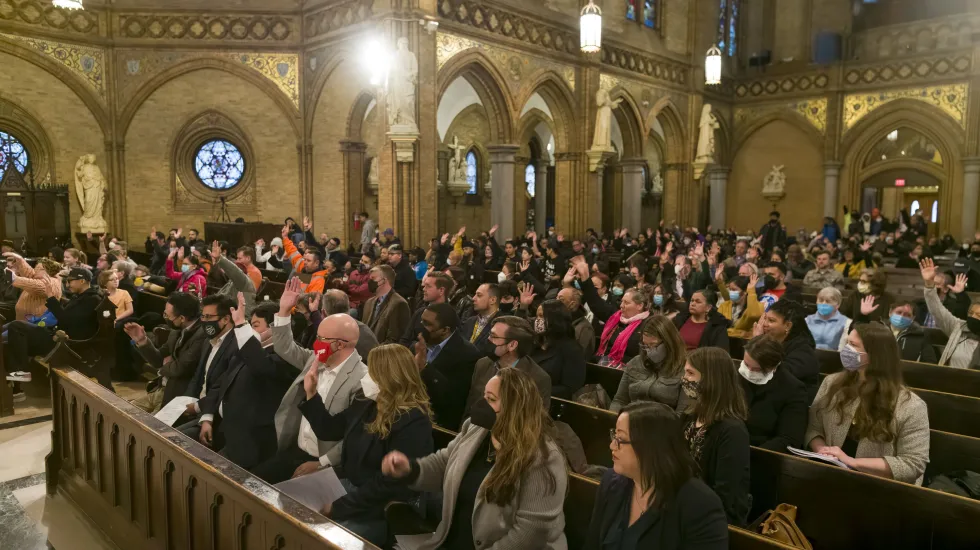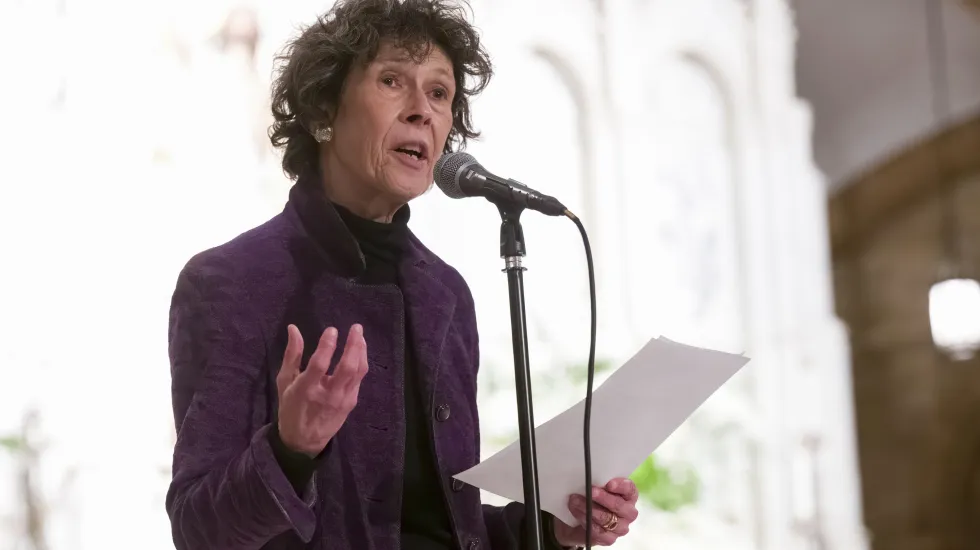
Getting ahead of another big fight in a community overburdened with environmental hazards, city health officials announced in Pilsen on Wednesday that they will perform a citywide comprehensive study to determine the cumulative impact of pollution on Chicagoans.
The study is part of a bigger program to spend $188 million from the Chicago Recovery Plan on environmental justice and climate preparedness efforts.
The announcement was made just before a community meeting at St. Paul’s Catholic Church in Pilsen that drew around 400 residents opposed to the nearby Sims Metal Management scrap metal business that is seeking multiple government permits needed to continue operating at its longtime location at 2500 S. Paulina St.
Sims is the latest big environmental justice fight in Chicago. In February, the city rejected a bid for a similar junked-car and scrap-metal shredding operation to open on the Southeast Side.
The impact study will include “a thorough inventory of pollution sources,” according to a city statement. The city also reiterated an initiative to expand air pollution monitoring.
At the Pilsen meeting, activist Theresa McNamara asked government officials for a plan “to give back to us the god-given right to breathe clean air.”
Tanya Lozano, a Pilsen resident and activist, gave a fiery speech in which she demanded, “We want Sims shut down.”
Sims shouldn’t get any government permits until a cumulative health study is conducted, she said.
Megan Cunningham, managing deputy director for the city’s Health Department, said in an interview that the city would like to complete the cumulative assessment by the end of 2023.
At the Pilsen gathering, she called a life expectancy gap between whites and Black and Brown residents “unjust, unacceptable” and said it is preventable, in part, by reducing air pollution.
Like the former General Iron — recently blocked from relocating and reopening on the Southeast Side — Sims shreds junked cars, discarded appliances and other large scrap-metal items to resell the material for recycling.
Last week, the U.S. Environmental Protection Agency ordered Sims to install air monitors at its operation at 2500 S. Paulina St. to help detect harmful metals emitted.
That move followed a lawsuit last year by the state, alleging that the business didn’t show it was containing pollution as is required by law.
Sims is seeking state and city permits to continue operating and also to build equipment designed to capture a greater amount of pollutants.
Last month, a half dozen children hand delivered a letter to EPA Regional Administrator Debra Shore, asking her for a thorough health study to show the impact pollution has on the community. Sims is located in an industrial area close to homes and at least three schools.
One of the children at that protest, Apollonia Jackson, 8, showed her asthma inhaler and medicine in her school backpack to the crowed gathered at St. Paul’s.
“Our lungs are being destroyed by polluters,” she said as she asked Shore if she was on her side or on the side of polluters.

Shore told the crowd at St. Paul’s that EPA will loan residents handheld air quality monitors and vowed to hold Sims and other polluting businesses accountable. She said she will work with the city on the cumulative impact study.
EPA delegates a large amount of responsibility to Illinois environmental officials. Those state regulators will decide the fate of two permits for Sims but residents want the health study done before any decisions are made.
A health impact study on the Southeast Side was cited by Mayor Lori Lightfoot’s administration when the relocated General Iron permit was denied in February.
In a statement, Sims said, “We have been a trusted community partner in Pilsen since the 1980s and we are committed to continuing to be a good neighbor. We appreciate and respect concerns from our community members and we are working toward making improvements with these community concerns in mind.”
Brett Chase’s reporting on the environment and public health is made possible by a grant from The Chicago Community Trust.







